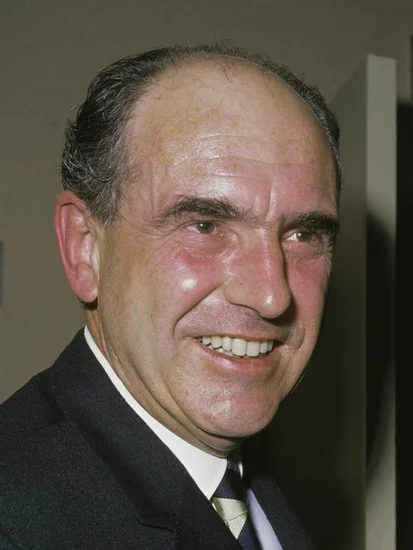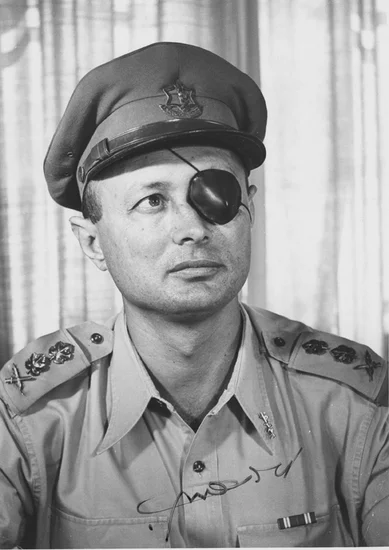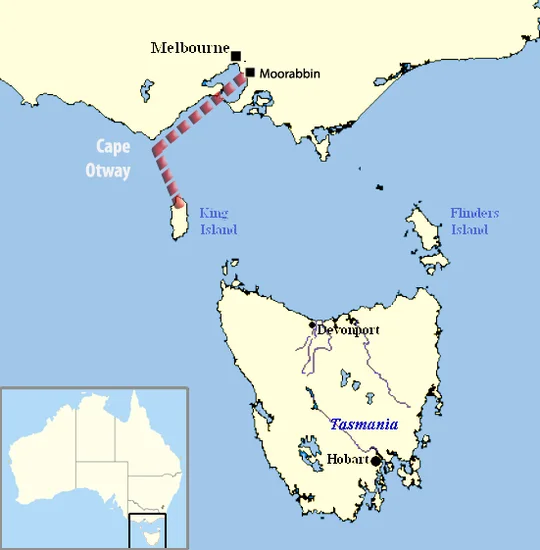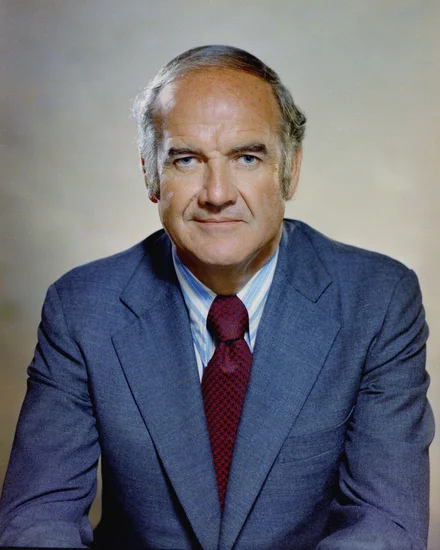October 21 stands as one of history’s most eventful days, witnessing the rise and fall of empires, groundbreaking discoveries, and moments that shaped our modern world across centuries of human achievement.

Politics and Government Events on October 21
1921 – President Harding Delivers Anti-Lynching Speech in Deep South

President Warren G. Harding made history by delivering the first speech by a sitting U.S. president against lynching in the Deep South. His courageous address challenged the region’s most brutal racial practices during the height of Jim Crow.
The speech marked a pivotal moment in federal opposition to racial violence. Harding’s words signaled a shift toward federal intervention in civil rights matters that would eventually transform American society.
1945 – French Women Vote for First Time
French women exercised their right to vote for the first time in the 1945 legislative election. This historic milestone ended decades of political exclusion and marked France’s transition to universal suffrage.
The election results would reshape French politics for generations. Women’s participation fundamentally altered the nation’s democratic landscape and political priorities.
1969 – Somali Marxist Coup Establishes New Government
The 1969 Somali coup d’état brought a Marxist-Leninist administration to power in the Horn of Africa. Revolutionary forces overthrew the existing government and implemented socialist policies across the nation.
The coup aligned Somalia with Soviet interests during the Cold War. This political transformation would have lasting consequences for regional stability and international relations.
1981 – Papandreou Becomes Greek Prime Minister

Andreas Papandreou became Prime Minister of Greece, ending nearly 50 years of conservative political dominance. His victory marked a dramatic shift toward socialist policies and social reform.
The election results transformed Greek politics and society. Papandreou’s leadership would modernize Greece and strengthen its position within European democratic institutions.
2011 – Canada’s Liberal Party Wins Minority Government
The 2019 Canadian federal election concluded with Prime Minister Justin Trudeau’s Liberal Party retaining power in a minority government. The results reflected Canadian voters’ continued confidence in Liberal leadership despite reduced parliamentary strength.
Trudeau’s victory ensured policy continuity while requiring greater political cooperation. The minority government structure would force increased collaboration across party lines.
Military and Naval History on October 21
1910 – HMS Niobe Arrives in Halifax as First Royal Canadian Navy Ship
HMS Niobe arrived in Halifax Harbour to become the inaugural vessel of the Royal Canadian Navy. This historic moment marked Canada’s emergence as an independent naval power within the British Empire.
The ship’s arrival symbolized Canada’s growing military autonomy and national identity. Niobe’s commissioning established the foundation for Canada’s modern naval forces.
1912 – Greek Navy Captures Strategic Lemnos Island
The Greek navy completed its capture of Lemnos island during the First Balkan War, securing a crucial forward base against the Dardanelles. This strategic victory enhanced Greek naval operations in the Aegean Sea.
The island’s capture proved decisive in subsequent military campaigns. Greek control of Lemnos would influence regional power dynamics throughout the Balkan conflicts.
1944 – First Kamikaze Attack Damages HMAS Australia
The first kamikaze attack struck HMAS Australia as the Battle of Leyte Gulf began, marking a new phase in Pacific warfare. This desperate Japanese tactic demonstrated their determination to resist Allied advances.
The attack signaled Japan’s shift toward suicide missions as conventional forces weakened. Kamikaze tactics would become a defining feature of the war’s final phase.
1950 – Korean War Fighting Intensifies at Yongju
Heavy fighting erupted between British and Australian forces against North Korean troops during the Battle of Yongju. The intense combat demonstrated the conflict’s international scope and brutal nature.
Commonwealth forces faced determined resistance from North Korean units. The battle highlighted the Korean War’s transformation into a prolonged international conflict.
1956 – Mau Mau Uprising Defeated in Kenya
The Mau Mau Uprising in Kenya was finally defeated after years of brutal colonial warfare. British forces successfully suppressed the independence movement through harsh military tactics and detention policies.
The uprising’s defeat marked a pyrrhic victory for colonial authorities. International condemnation of British methods accelerated Kenya’s eventual path to independence.
Science and Discovery Milestones on October 21
1965 – Comet Ikeya-Seki Approaches Closest Point to Sun

Comet Ikeya-Seki approached perihelion, passing within 450,000 kilometers of the sun in a spectacular celestial display. Astronomers worldwide observed this rare “sun-grazing” comet as it survived its dangerous solar encounter.
The comet’s brilliant tail became visible to millions of observers across the globe. Its survival and spectacular appearance provided valuable scientific data about cometary composition and behavior.
1983 – Metre Redefined Using Speed of Light

Scientists redefined the metre as the distance light travels in a vacuum in 1/299,792,458 of a second. This revolutionary measurement standard linked fundamental units to universal physical constants.
The new definition eliminated previous measurement inconsistencies and established unprecedented precision. This breakthrough advanced scientific research and international standardization efforts.
2005 – Discovery Images of Dwarf Planet Eris Captured

Astronomers captured images of the dwarf planet Eris that would subsequently document its official discovery. These observations revolutionized understanding of our solar system’s outer regions.
The discovery challenged traditional planetary classification systems and sparked scientific debates. Eris’s identification ultimately led to Pluto’s reclassification as a dwarf planet.
1959 – Army Space Activities Transfer to NASA

President Dwight D. Eisenhower approved transferring all U.S. Army space-related activities to NASA, including most of the Army Ballistic Missile Agency. This consolidation unified America’s civilian space program under single leadership.
The transfer accelerated American space exploration efforts during the Cold War. NASA’s expanded capabilities would prove crucial in achieving the moon landing goal.
Cultural and Arts Events on October 21
1940 – Hemingway’s “For Whom the Bell Tolls” Published

The first edition of Ernest Hemingway’s novel “For Whom the Bell Tolls” was published to immediate acclaim. The powerful work explored themes of war, sacrifice, and human dignity during the Spanish Civil War.
The novel established Hemingway as one of America’s greatest literary voices. Its success enhanced his reputation and influenced countless writers and readers worldwide.
1959 – Guggenheim Museum Opens in New York
The Solomon R. Guggenheim Museum opened to the public in New York City, showcasing Frank Lloyd Wright’s revolutionary spiral architecture. The building’s innovative design transformed museum experiences and architectural possibilities.
Wright’s masterpiece became an instant landmark and cultural icon. The museum’s unique structure enhanced art appreciation while establishing new standards for cultural institutions.
1984 – Niki Lauda Wins Third Formula One Championship

Niki Lauda claimed his third and final Formula One Drivers’ Championship by half a point ahead of teammate Alain Prost at the Portuguese Grand Prix. The narrow victory capped one of racing’s most dramatic seasons.
Lauda’s triumph demonstrated remarkable skill and determination in motorsport’s pinnacle competition. His championship victory added another legendary chapter to Formula One history.
1973 – NFL Player Achieves Historic Double Safety

Fred Dryer of the Los Angeles Rams became the first player in NFL history to score two safeties in the same game. This unprecedented defensive achievement established a record that remains unmatched.
Dryer’s exceptional performance showcased defensive football at its finest. The historic feat highlighted individual excellence within team sports competition.
Religious and Social Events on October 21
1967 – Fifty Thousand March Against Vietnam War
The National Mobilization Committee to End the War in Vietnam organized a march of fifty thousand people from the Lincoln Memorial to the Pentagon. This massive demonstration represented growing public opposition to American involvement in Southeast Asia.
The march demonstrated the anti-war movement’s organizational strength and popular support. Public protests like this eventually influenced government policy and contributed to war’s end.
1979 – Moshe Dayan Resigns Over Arab Policy Disagreements

Moshe Dayan resigned from the Israeli government due to strong disagreements with Prime Minister Menachem Begin over policy toward Arabs. The veteran military leader’s departure highlighted internal Israeli political tensions.
Dayan’s resignation reflected deep divisions within Israeli leadership about peace negotiations. His departure influenced subsequent diplomatic efforts and regional peace processes.
1994 – North Korea Signs Nuclear Agreement Framework
North Korea and the United States signed an Agreed Framework requiring North Korea to halt its nuclear weapons program and accept international inspections. The diplomatic breakthrough offered hope for regional stability.
The agreement represented a significant step toward nuclear non-proliferation. However, implementation challenges would eventually undermine the framework’s long-term effectiveness.
1931 – Japanese Army Coup Attempt Fails
A secret society within the Imperial Japanese Army launched an abortive coup d’état attempt against the government. The failed conspiracy revealed growing military extremism within Japanese society.
The attempted coup demonstrated rising tensions between civilian and military leadership. This internal conflict would eventually contribute to Japan’s militaristic path toward World War II.
Business and Economic Events on October 21
1978 – Australian Pilot Vanishes After UFO Report

Australian civilian pilot Frederick Valentich vanished over the Bass Strait south of Melbourne after reporting contact with an unidentified aircraft. His mysterious disappearance sparked decades of speculation and investigation.
The case became one of aviation’s most enduring mysteries. Valentich’s final radio transmissions continue to intrigue researchers and fuel debates about unexplained aerial phenomena.
1986 – American Writer Kidnapped in Lebanon
Pro-Iran kidnappers in Lebanon claimed to have abducted American writer Edward Tracy, who would remain captive until August 1991. The kidnapping highlighted the dangerous environment for Western civilians in the region.
Tracy’s prolonged captivity demonstrated the effectiveness of hostage-taking as a political weapon. His eventual release came after years of complex diplomatic negotiations.
1994 – Seoul Bridge Collapse Kills 32 People

A span of the Seongsu Bridge collapsed in Seoul, South Korea, killing 32 people in a tragic infrastructure failure. The disaster exposed serious problems with construction quality and safety oversight.
The collapse prompted comprehensive reviews of South Korea’s infrastructure standards. The tragedy led to significant improvements in construction practices and safety regulations.
2019 – Congo Bus Crash Claims Thirty Lives
Thirty people died in a fiery bus crash in western Democratic Republic of the Congo, highlighting the nation’s dangerous transportation conditions. The accident demonstrated ongoing challenges in road safety and vehicle maintenance.
The tragedy reflected broader infrastructure problems throughout the region. Such accidents remain common due to poor road conditions and inadequate safety enforcement.
Transportation and Infrastructure on October 21
1967 – Welsh Mining Disaster Kills 144 People

A colliery spoil tip slipped onto houses and a school in the village of Aberfan in Wales, killing 144 people, including 116 schoolchildren. The catastrophic landslide devastated the small mining community.
The Aberfan disaster became one of Britain’s worst industrial accidents. The tragedy led to major changes in mining safety regulations and community protection measures.
1971 – Glasgow Shopping Centre Gas Explosion
A gas explosion killed 22 people at a shopping centre near Glasgow, Scotland, in a devastating infrastructure failure. The blast highlighted serious problems with gas safety systems and building design.
The explosion prompted comprehensive reviews of gas safety regulations throughout Britain. New safety standards and inspection procedures emerged from this tragic incident.
1989 – Honduras Aviation Disaster Kills 131
A Boeing 727 crashed on approach to Toncontín International Airport near Tegucigalpa, Honduras, killing 131 people. The accident highlighted the dangerous conditions at one of the world’s most challenging airports.
The crash demonstrated the risks associated with airports in mountainous terrain. Aviation authorities implemented new safety procedures and approach protocols following the disaster.
2011 – Obama Announces Iraq War Troop Withdrawal
President Barack Obama announced that the withdrawal of United States troops from Iraq would be complete by year’s end. This historic decision marked the conclusion of nearly nine years of American military involvement.
The withdrawal announcement fulfilled a key campaign promise and reflected changing American priorities. The decision would significantly impact regional stability and American foreign policy.
Sports and Recreation on October 21
1984 – Lauda Wins Championship by Half Point

Niki Lauda claimed his third Formula One championship by defeating teammate Alain Prost by just half a point at the Portuguese Grand Prix. The incredibly close finish created one of racing’s most dramatic conclusions.
The narrow victory demonstrated the sport’s competitive intensity and strategic complexity. Lauda’s championship triumph capped a remarkable comeback from near-fatal injuries.
1973 – Dryer Scores Historic Double Safety

Los Angeles Rams defender Fred Dryer became the first NFL player to record two safeties in a single game. His unprecedented achievement established a record that remains unmatched in professional football.
The historic performance showcased exceptional defensive play and strategic awareness. Dryer’s achievement highlighted individual excellence within team sports competition.
1978 – Pilot Disappears After UFO Encounter Report

Frederick Valentich, an Australian civilian pilot, vanished over Bass Strait after reporting contact with an unidentified aircraft. His mysterious disappearance became one of aviation’s most enduring unsolved cases.
The incident sparked decades of investigation and speculation about unexplained aerial phenomena. Valentich’s final radio transmissions continue to intrigue researchers and aviation enthusiasts.
Notable Births on October 21
1917 – Dizzy Gillespie Born

Jazz trumpet virtuoso Dizzy Gillespie entered the world, destined to revolutionize American music. His innovative approach to bebop and Latin jazz would influence countless musicians worldwide.
Gillespie’s distinctive playing style and bent trumpet became iconic symbols of jazz evolution. His contributions to musical education and cultural exchange transcended entertainment to become artistic diplomacy.
1925 – Celia Cruz Born

Cuban singer Celia Cruz was born, later becoming the undisputed “Queen of Salsa” music. Her powerful voice and charismatic performances would captivate audiences across the Americas.
Cruz’s artistic legacy transformed Latin music and brought Caribbean rhythms to global audiences. Her influence on popular music and cultural identity remains profound decades after her career.
1929 – Ursula K. Le Guin Born

American author Ursula K. Le Guin was born, destined to become one of science fiction’s most influential voices. Her groundbreaking novels explored themes of gender, politics, and human nature with unprecedented depth.
Le Guin’s literary contributions challenged conventional storytelling and expanded genre boundaries. Her works continue to inspire writers and readers seeking thoughtful, imaginative literature.
1949 – Benjamin Netanyahu Born

Israeli politician Benjamin Netanyahu was born, later becoming one of the nation’s most prominent leaders. His political career would span decades and significantly influence Middle Eastern affairs.
Netanyahu’s leadership during critical periods shaped Israeli policy and regional diplomacy. His long tenure as Prime Minister made him a central figure in contemporary Middle Eastern politics.
1956 – Carrie Fisher Born

American actress Carrie Fisher was born, later achieving fame as Princess Leia in the Star Wars saga. Her iconic performance would make her one of cinema’s most beloved characters.
Fisher’s talent extended beyond acting to writing and mental health advocacy. Her candid discussions about bipolar disorder helped reduce stigma and encouraged others to seek treatment.
1980 – Kim Kardashian Born

American media personality Kim Kardashian was born, later becoming a global celebrity and businesswoman. Her influence on popular culture and social media would reshape modern celebrity.
Kardashian’s business ventures and media presence revolutionized entertainment and marketing. Her success demonstrated the power of personal branding in the digital age.
Notable Deaths on October 21
1969 – Jack Kerouac Dies

Beat Generation author Jack Kerouac died, ending a literary career that defined counterculture movement. His novel “On the Road” captured the restless spirit of post-war American youth.
Kerouac’s spontaneous prose style influenced countless writers and artists. His exploration of freedom, spirituality, and American identity resonated with multiple generations seeking authentic expression.
1984 – François Truffaut Dies

French New Wave filmmaker François Truffaut died, concluding a revolutionary career in cinema. His innovative directing style and personal storytelling approach transformed international filmmaking.
Truffaut’s contributions to film theory and practice influenced directors worldwide. His humanistic approach to cinema emphasized emotion and character development over technical spectacle.
2003 – Elliott Smith Dies

American singer-songwriter Elliott Smith died, ending a career marked by introspective lyrics and delicate melodies. His deeply personal songs resonated with listeners seeking emotional authenticity.
Smith’s musical legacy continues to influence indie rock and alternative music. His honest exploration of mental health struggles through songwriting provided comfort to countless fans.
2012 – George McGovern Dies

American politician and World War II veteran George McGovern died, concluding a lifetime of public service. His 1972 presidential campaign advocated for peace and social justice.
McGovern’s dedication to fighting hunger and poverty extended beyond politics. His humanitarian work and principled leadership inspired generations of progressive activists.
2014 – Gough Whitlam Dies

Australian Prime Minister Gough Whitlam died, ending a transformative political career. His progressive reforms modernized Australian society and expanded social services.
Whitlam’s brief but impactful tenure changed Australia’s relationship with Asia and indigenous peoples. His dismissal in 1975 remains one of Australia’s most controversial constitutional crises.
Holidays and Observances on October 21
Armed Forces Day in Honduras
Honduras celebrates Armed Forces Day to honor military service members and their contributions to national security. The observance recognizes the dedication and sacrifice of those who defend the nation.
Military parades and ceremonies mark the day across the country. Citizens express gratitude for armed forces’ role in maintaining peace and protecting democratic institutions.
Trafalgar Day Historical Observance

Trafalgar Day commemorated the British naval victory over Napoleon’s fleet in 1805. The observance celebrated British maritime supremacy during the 19th and early 20th centuries.
The day honored Admiral Nelson’s tactical genius and British naval tradition. Victory at Trafalgar established British control of the seas and influenced global power dynamics for generations.
Indian Police Commemoration Day
India observes Police Commemoration Day to honor law enforcement officers who died in service. The solemn day recognizes police sacrifice and dedication to public safety.
Memorial services and ceremonies remember fallen officers across the nation. The observance reinforces public support for law enforcement and acknowledges their dangerous duties.
